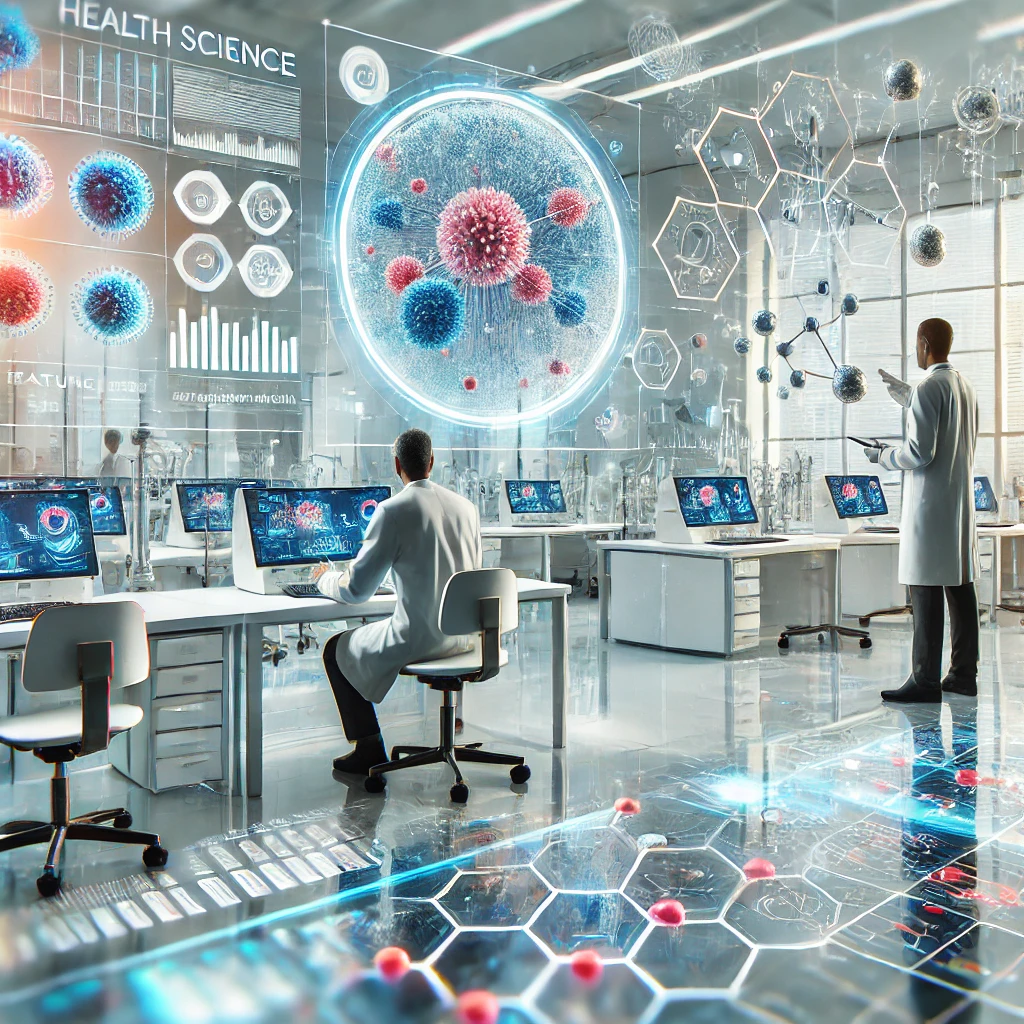Exploring Advances in Health Science & Medicine: Insights from Recent Research. Discover the latest breakthroughs in Advances in Health Science & Medicine through recent research. Join us for insightful discoveries & impactful findings!
Explore the Possibilities of Health Sciences | RMIT University
Exploring Advances in Health Science & Medicine: Insights from Recent Research
Recent Breakthroughs in Genetics
Advancements in genetics shape medicine’s future. In the last decade, research on genetic editing has evolved. Tools like CRISPR-Cas9 allow scientists to modify DNA quickly. This capability may help treat genetic disorders, such as muscular dystrophy or cystic fibrosis.
Research shows that genetic modifications can correct faulty genes. Scientists can potentially eliminate diseases. A recent study indicated promising results in trials. Be that as it may, ethical concerns remain about gene editing in embryos.
And don’t forget, personalized medicine gains traction. This approach tailors treatments based on individual genetic profiles. It optimizes drug efficacy & minimizes side effects. For instance, breast cancer treatments now consider specific gene mutations. As this field progresses, patients may receive targeted therapies that align with their DNA.
| Innovation | Benefit |
|---|---|
| CRISPR-Cas9 | Targeted gene editing |
| Gene Therapy | Cures for genetic disorders |
Artificial Intelligence in Healthcare
Artificial Intelligence (AI) transforms healthcare delivery. AI algorithms analyze vast data to assist physicians in diagnostics. Recent studies show AI’s accuracy in identifying medical conditions. For example, it can detect early-stage lung cancer from X-ray images with high precision.
On top of that, AI streamlines administrative tasks. Automated systems reduce the time needed for paperwork. Healthcare professionals can spend more time with patients. AI also supports drug discovery. By simulating biological responses, AI identifies potential drugs faster.
Be that as it may, integrating AI faces challenges. Data privacy concerns arise. And another thing, ensuring algorithm accuracy is vital. As research develops, the healthcare industry can expect more AI applications.
- Enhances diagnostic accuracy.
- Assists in patient monitoring.
- Reduces administrative burdens.
Telemedicine: The Future of Patient Care
Telemedicine rises as a crucial healthcare component. Recent global events accelerated its adoption. Patients now consult doctors through video calls. This method improves access, especially for those in remote areas.
Research highlights various strengths of telemedicine. It reduces the need for travel, saving time & costs. And another thing, patients feel more comfortable in their homes. Studies show satisfaction rates among telemedicine users are high.
Ad
Visit Now
Challenges exist as well. Internet access can limit service availability. And another thing, some patients prefer in-person consultations. Yet, telemedicine continues to evolve, offering new opportunities. Doctors can monitor chronic conditions remotely, providing better care.
| Benefit | Impact |
|---|---|
| Increased Access | More patients receive care |
| Cost Efficient | Lower healthcare expenses |
Advances in Vaccination Technology
Vaccination has seen remarkable progress recently. New platforms for vaccine development emerge, like mRNA technology. This method proved effective in fighting COVID-19. Researchers can replicate this success in other diseases.
Traditionally, vaccines require years of research. Be that as it may, new approaches can accelerate this process. Researchers can use AI for predicting vaccine responses. This speeds up experimental phases significantly.
And don’t forget, personalized vaccines become a reality. These vaccines adjust to the individual’s immune response. Studies show improved protection against infectious diseases. As more research supports these advancements, global health may benefit significantly.
- mRNA for quick response
- Personalized vaccines for efficacy
- AI-driven developments
Regenerative Medicine: A New Horizon
Regenerative medicine aims to restore damaged tissues. Researchers investigate stem cells for their potential. These cells can differentiate into various cell types. Potential exists to regenerate organs & tissues, offering hope to patients.
Recent studies present success in creating artificial organs. A team successfully printed a vascularized heart. This breakthrough provides insight into future organ transplants.
And another thing, scientists explore the possible role of gene therapy in regenerative medicine. Combining these approaches may revolutionize treatments for numerous conditions. Patients could receive new functionalities for damaged organs.
| Research Focus | Potential Application |
|---|---|
| Stem Cells | Tissue regeneration |
| 3D Bioprinting | Organ creation |
Wearable Health Technologies
Wearable health technologies are becoming commonplace. Devices track fitness & monitor vital signs. These innovations empower users to take charge of their health. Recent research indicates significant benefits from using wearables.
Wearable technologies improve chronic disease management. Users can track medication adherence & symptoms. This data helps healthcare providers tailor treatments. In addition, wearables also encourage healthy lifestyles.
Be that as it may, challenges exist regarding data privacy. Users must feel secure about sharing sensitive information. Ensuring proper health data protection is essential for continued growth.
- Promotes healthier lifestyles.
- Empowers chronic disease patients.
- Facilitates remote monitoring.
Personalized Medicine: Custom Treatments
Personalized medicine represents a significant shift in healthcare. This approach tailors treatments to individual patients. As research advances, medical professionals gather more data about patients.
Ad
Visit Now
Understanding genetic makeup is crucial. Tailoring treatments benefits from this knowledge. For example, oncology offers targeted therapies based on tumors. These treatments result in better outcomes.
Recently, advances in data analytics support personalized approaches. Using big data facilitates informed decisions. Healthcare providers can formulate more effective treatment plans. Personalized medicine’s future looks promising for patient care.
| Field | Example |
|---|---|
| Oncology | Targeted cancer therapies |
| Pharmacogenomics | Drug response based on genetics |
Neuroscience Innovations: Understanding the Brain
Neuroscience research advances significantly in recent years. These studies enhance our insights into brain function. New imaging techniques offer clearer pictures of brain activity. This progress aids in diagnosing conditions like Alzheimer’s disease.
On top of that, breakthroughs in neuroplasticity show promise. The brain can reorganize by forming new connections. This understanding impacts rehabilitation after injuries or strokes. Therapies now focus on encouraging brain adaptation.
Recent studies also emphasize the gut-brain connection. Exploring this relationship reveals impacts on mood & cognition. Researchers find that gut health can influence mental well-being.
- Advanced brain imaging techniques.
- Neuroplasticity enhances rehabilitation.
- Gut-brain connection affects mental health.
Ethical Considerations in Health Advances
As technology progresses, ethical issues become more crucial. Many health advancements raise concerns about safety & privacy. Recent research highlights the importance of ethical frameworks.
Gene editing, for instance, ignites debates on designer babies. Scientists must navigate these moral landscapes carefully. Ensuring diverse perspectives is essential in discussions.
Data privacy remains a pressing issue, especially with AI & wearables. Protecting patient information is vital in maintaining trust. And another thing, ensuring equitable access to innovations is necessary.
| Concern | Implication |
|---|---|
| Privacy | Trust in technology use |
| Equity | Access to treatments |
My Personal Experience with Health Innovations
During my research journey, I discovered strong connections to advances in health science & medicine. Using technology enhanced my learning. Online databases provided access to studies. Attending webinars connected me to leading experts.
“The future of medicine is in technology & ethics.” – Dr. Helen Reed
This experience shaped my views on health advancements. I saw firsthand how science & technology collaborate for better outcomes. These developments will impact healthcare in tremendous ways.
What are the latest advances in health science & medicine?
Recent advances in health science & medicine include breakthroughs in gene therapy, personalized medicine, artificial intelligence in diagnostics, & advancements in telemedicine. Researchers are also making progress in understanding the human microbiome & its impact on health, along with innovative treatments for chronic diseases & cancer.
How does technology impact modern healthcare?
Technology significantly impacts modern healthcare by improving patient outcomes & streamlining operations. Innovations such as electronic health records (EHRs), telehealth platforms, wearable health devices, & mobile health apps enhance access to care, facilitate remote monitoring, & foster better communication between patients & healthcare providers.
What role does research play in advancing health sciences?
Research is crucial in advancing health sciences as it provides the foundational knowledge necessary for developing new treatments, understanding diseases, & improving health outcomes. Clinical trials, epidemiological studies, & laboratory research help identify effective interventions & guide public health policies.
What are the implications of personalized medicine?
Personalized medicine tailors medical treatment to the individual characteristics of each patient, which can lead to more effective outcomes & fewer side effects. It uses genetic, environmental, & lifestyle factors to inform decisions about the prevention, diagnosis, & treatment of diseases, ultimately improving patient care & efficiency in the healthcare system.
How can emerging technologies improve patient care?
Emerging technologies such as artificial intelligence, machine learning, & robotics can improve patient care by enabling more accurate diagnostics, enhancing surgical precision, & providing predictive analytics. And another thing, these technologies can facilitate personalized treatment plans & enhance patient engagement through interactive applications & virtual health services.
More Scientific Knowledge = Scientific Knowledge
In summary, Exploring Advances in Health Science & Medicine: Insights from Recent Research reveals exciting developments that can benefit everyone. These breakthroughs show how scientists & doctors are working hard to improve our health & wellbeing. By understanding new treatments & technologies, we can look forward to a healthier future. It’s clear that research is on our side, bringing hope & real solutions to health challenges we face today. Staying informed about these changes helps us make better choices for our health & encourages us to embrace advancements in this vital field.
Ad
Visit Now



